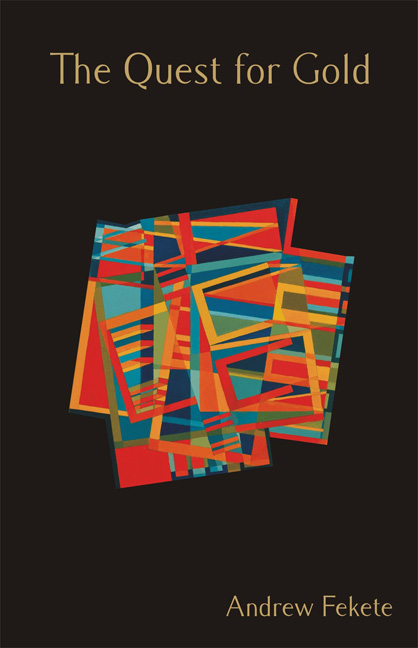Book contents
- Frontmatter
- Dedication
- Contents
- Preface
- The Voyage into Night
- 1 Ariel
- 2 The Serpent
- 3 The Hidden Continents
- 4 The Foundation
- 5 The Light of Darkness
- Selected diary entries for the period during the composition of The Quest for Gold
- Punishment for the Transgressors
- Symbols of Creation and Destruction
- Appendix Revised versions of two poems
- Platesection
5 - The Light of Darkness
- Frontmatter
- Dedication
- Contents
- Preface
- The Voyage into Night
- 1 Ariel
- 2 The Serpent
- 3 The Hidden Continents
- 4 The Foundation
- 5 The Light of Darkness
- Selected diary entries for the period during the composition of The Quest for Gold
- Punishment for the Transgressors
- Symbols of Creation and Destruction
- Appendix Revised versions of two poems
- Platesection
Summary
In the darkness of the night you may open up a dialogue with yourself and arrive at a profound inner penetration. This does not consist in the free association of one's thoughts, but rather in their cessation; in the recognition that one possesses other voices within one. To a Jesuit or to an orthodox Catholic this might take the form of an open and naive dialogue with the Divine, but there is nothing which can disturb the utter silence of the effort and concentration involved in the meditation. The only disturbances come as lapses, as a recalling of consciousness to the point of discursive thinking. You are afraid to go further into the realm of unbeing, into the unravelling of being. Pushed to its extreme of unthinking, unconscious awareness it would take the form of an ascent into pure experience into the abeyance of the nagging thoughts which plague you and chain you to affects and emotions. There are gateways which come upon one in moments of crisis. Gateways which open up the paths towards illumination. To points at which hallucinations cease and are no longer sought.
How many times must you enter? These occasions bring upon an inner circulation within the mental retort. Each stimulus calls forth responses which must be assimilated, but the essential nature of the stimulus remains the same. Rooted in an avatar, an archaic sense of the other being, you recoil in apprehension wondering whether or not this unfolding principle is hostile to life itself, wondering whether or not you have caught the tail of the Devil rather than the Divine Light.
It must happen countless times and with each experience it must happen on a different level so that gradually your prejudices and anticipations are inexorably eroded and so that you reach the point where the foundations of your being are so undermined that there is nothing to separate you from the free fall into it, other than the last saving glimmer of common sense.
Back in my flat I began to take out some of the papers, books, documents and paintings which had occupied me in the past three years. Many of them were now in packing cases and boxes ready for my move to another home.
- Type
- Chapter
- Information
- The Quest for Gold , pp. 129 - 138Publisher: Liverpool University PressPrint publication year: 2016



